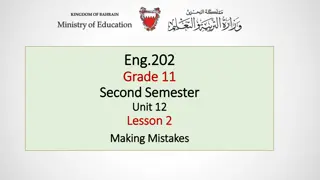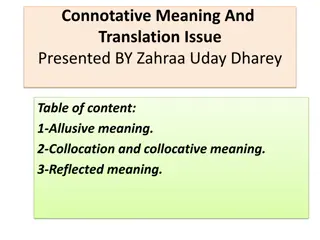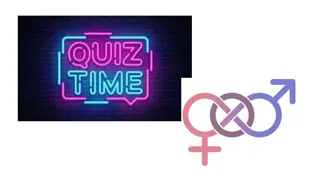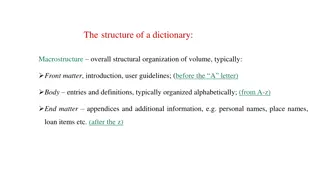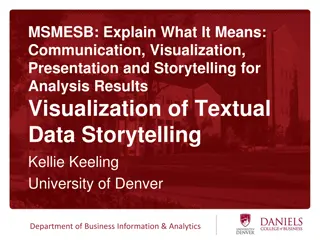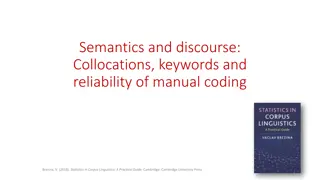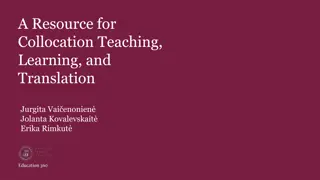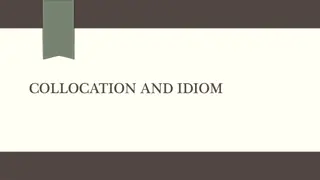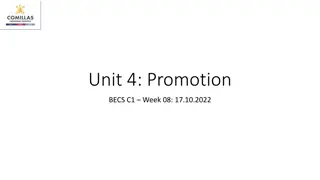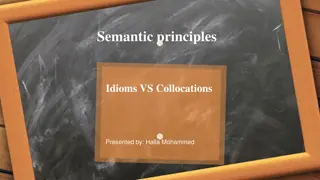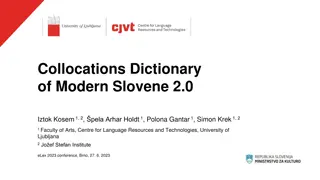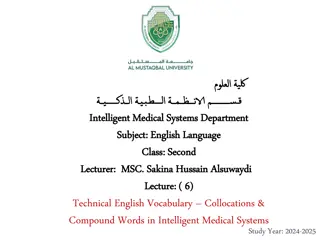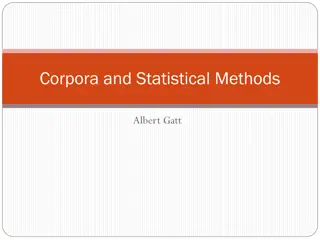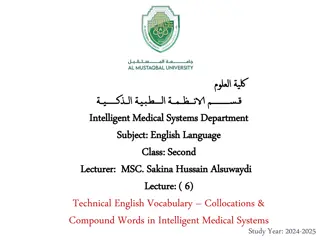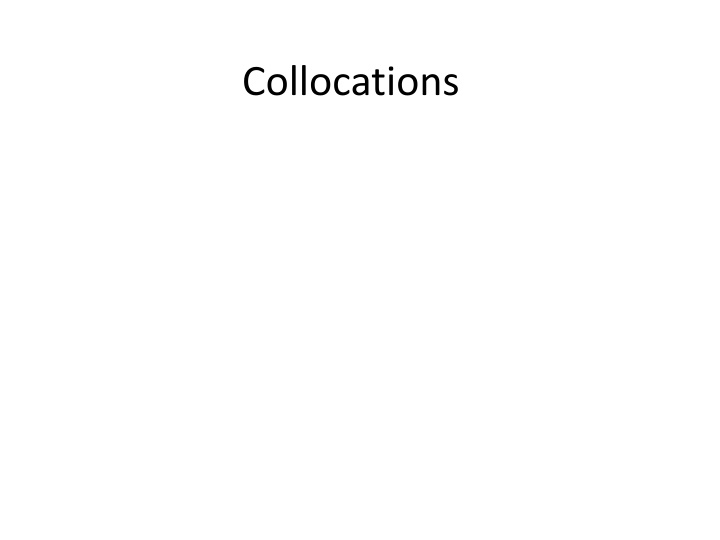
Collocations: Commonly Used Word Combinations
Explore the concept of collocations, which are two or more words frequently used together in English. Discover important collocations such as "Have a Good Time/Day," "Catch a Cold," and "Save Time," and learn how these word combinations enhance language fluency and expression in various contexts.
Download Presentation

Please find below an Image/Link to download the presentation.
The content on the website is provided AS IS for your information and personal use only. It may not be sold, licensed, or shared on other websites without obtaining consent from the author. If you encounter any issues during the download, it is possible that the publisher has removed the file from their server.
You are allowed to download the files provided on this website for personal or commercial use, subject to the condition that they are used lawfully. All files are the property of their respective owners.
The content on the website is provided AS IS for your information and personal use only. It may not be sold, licensed, or shared on other websites without obtaining consent from the author.
E N D
Presentation Transcript
What are collocations? Although the term collocation may sound very intimidating, it simply refers to a phrase of two or more words that are commonly used together. Usually, if you replace one of the words in a collocation with a similar word, the phrase will sound strange and unnatural even if the meaning is technically the same. Collocations can express actions, emotions or ideas. They re used in both formal and informal speech, and different types of English, such as business English, often have their own collocations.
5 most important collocations in English 1. Have a Good Time/Day This phrase is one that you definitely want to note down! The verb you ll always hear in this collocation is has. You won t hear English speakers say make a good time, enjoy a good time, etc. Have a good time! can be used at the end of a conversation in a variety of informal situations. When you re leaving the caf with a friend who s going to the movies that afternoon, you can say, Have a good time at the movies! as you wave goodbye. Or if someone s going on vacation and you won t see them again before they leave, you can say, Have a good time on your trip! Another very similar phrase would be, Have a good day! which is more versatile. It can be used in both formal and informal situations.
2. Catch a Cold If you re an avid baseball fan, do note that catching a ball and catching a cold are two entirely different things. When someone catches a cold, it usually means that they re currently sneezing terribly or they have a bad sore throat. Basically, they feel sick. You might occasionally hear an English speaker say that they re getting a cold, but the collocation catch a cold is more common. When the cold season approaches, you ll often hear English speakers warn one another, Dress warmly so you don t catch a cold! It s a gentle reminder to wear appropriate winter clothing so that you don t accidentally fall sick. No one likes being sick, of course. Another common situation where you ll hear this phrase is in a working environment. If an employee s unable to come to work for the day, they ll probably tell their supervisor, I m unable to come to work today as I caught a cold. The next time you feel unwell (we hope it s not often!) do try to use this collocation.
3. Save Time If you re thinking about putting time into a box and storing it away in your cupboard, please don t try! We all know that it isn t possible! (But if you do find a way, be sure to let us know.) The collocation save time refers to getting something done faster than expected (or not having to do it at all). In other words, the time that you didn t have to spend on that activity is the time that you saved and can now use for other things. It s similar to the idea of saving money with a discount coupon, for example. This collocation is commonly seen in advertisements, often for technological products or appliances. Fancy washing machines that can wash clothes faster will help you save time. Pressure cookers that can prepare food very quickly will save time for you. Additionally, this collocation can be used in lots of everyday contexts. If you have a lot of projects at the office, you might ask your coworker to help you with paperwork so that you can save time.
4. Make a Difference You can make a difference! This collocation carries a positive meaning. To make a difference means doing something beneficial usually something that s good for a whole community. And that s undeniably something that we all want to do! For example, when you make a donation to a charity organization, you ve made a difference for all the people that charity serves. When you volunteer your time at an orphanage, you ve made a difference for the kids there. You could even make a small difference for your neighbors simply by cleaning up trash along your street. This is a very common and rigid collocation you won t hear English speakers change the verb. For example, do a difference or create a difference would sound strange.
5. Do Business This collocation is most often used in professional settings. To do business with someone usually refers to the buying and selling of goods or providing services between companies and clients. For example, if you work with English-speaking customers or business partners, you might tell them, It s been a pleasure doing business with you after completing a contract. Or if someone you know had a bad experience working with a company, they might advise you, Don t do business with them! If you re just having a coffee with a colleague from work, don t refer to it as doing business. That would be using a collocation in the wrong context. You can simply refer to it as catching up with a friend, which would mean that you and your friend are taking the time to tell each other about what s been happening in your lives.
have do make have a bath have a drink have a good time have a haircut have a holiday have a problem have a relationship have a rest have lunch have sympathy do business do nothing do someone a favour do the cooking do the housework do the shopping do the washing up do your best do your hair do your homework make a difference make a mess make a mistake make a noise make an effort make furniture make money make progress make room make trouble
Take take a break take a chance take a look take a rest take a seat take a taxi take an exam take notes take someone's place take someone's temperature
Break break a habit break a leg break a promise break a record break a window break someone's heart break the ice break the law break the news to someone break the rules
Catch catch a ball catch a bus catch a chill catch a cold catch a thief catch fire catch sight of catch someone's attention catch someone's eye catch the flu
Pay pay a fine pay attention pay by credit card pay cash pay interest pay someone a compliment pay someone a visit pay the bill pay the price pay your respects
Save save electricity save energy save money save one's strength save someone a seat save someone's life save something to a disk save space save time save yourself the trouble
keep keep a diary keep a promise keep a secret keep an appointment keep calm keep control keep in touch keep quiet keep someone's place keep the change
Come come close come complete with come direct come early come first come into view come last come late come on time come prepared come right back come second come to a compromise come to a decision come to an agreement come to an end come to a standstill come to terms with come to a total of come under attack
Go go abroad go astray go bad go bald go bankrupt go blind go crazy go dark go deaf go fishing go mad go missing go on foot go online go out of business go overseas go quiet go sailing go to war go yellow
Get get a job get a shock get angry get divorced get drunk get frightened get home get lost get married get nowhere get permission get pregnant get ready get started get the impression get the message get the sack get upset get wet get worried
Exercise with collocations: https://www.englishrevealed.co.uk/FCE/fce_v ocabulary/fce_collocations_5.php Please watch the video and write down 10 collocations: https://www.youtube.com/watch?v=CqRloBkyq Qs

